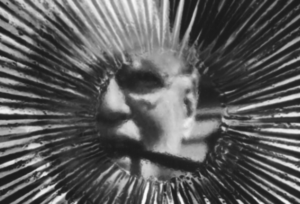From Aeon: In the 1950s, psychiatrist Donald Ewen Cameron developed a treatment called psychic driving, which involved removing distressing memories and pathological behaviors through an extensive regime of ECT, followed by subjecting patients to continuously repeated audio messages on a looped tape. The history of psychic driving, as well as the CIA’s sponsorship of this treatment as part of the MK-ULTRA Project, serves as a warning of the potential dangers of merging psychiatry with technology.
“Psychic driving might also tell us something about the future, not just the past, of psychological therapy. Few present-day psychiatrists find themselves preoccupied with issues of communism and brainwashing, but Cameron’s core belief in the inevitable merging of technology and psychiatry has proven remarkably resilient. This is perhaps seen most dramatically in the recent explosion of smartphone applications concerned with mental health, with some 10,000 apps on the market offering everything from mood trackers to mindfulness programmes, ambient noise generators to automated hypnosis. Enthusiastic advocates have been quick to praise these pocket-sized therapies as a timely solution to the budgetary pressures and long waiting lists of overstretched mental health services.
However, psychic driving introduces a note of caution to these celebrations. While exotic conspiracies of international espionage are unlikely to be uncovered, Cameron’s work reminds us that we ought to question whose interests, beyond benevolent ‘healing’, are at play. Beneath the optimistic rhetoric of this new wave of ‘techno-therapy’ there is plenty to worry about: applications frequently lack expert medical oversight, few are supported by reliable studies gauging their effectiveness or even basic safety, and many have been found to leak or actively sell users’ sensitive health data to third parties. Clearly such issues must be interrogated further, and the history of psychic driving can bolster the necessary scepticism – and dissent – to do so.”















